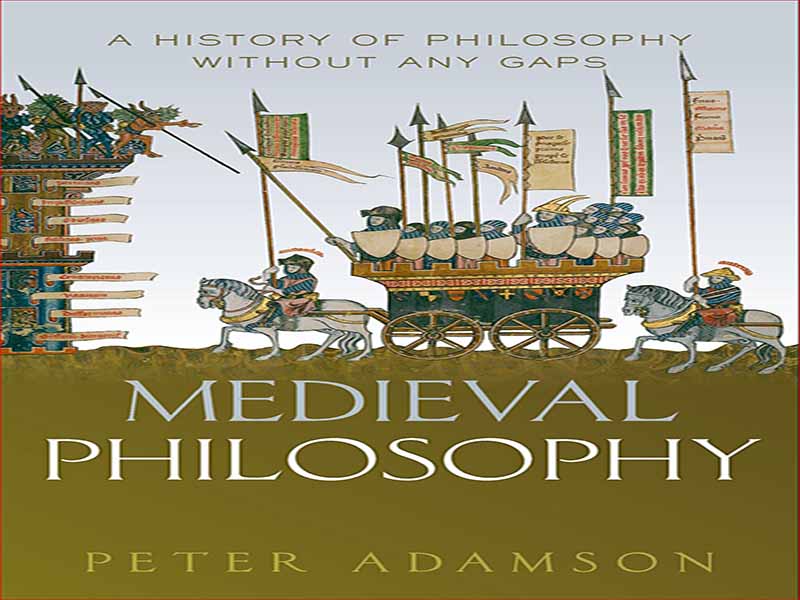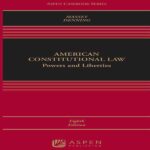- عنوان کتاب: MEDIEVAL-PHILOSOPHY-Volume_4
- نویسنده: Peter-Adamson
- حوزه: فلسفه قرون وسطی
- سال انتشار: 2019
- تعداد صفحه: 660
- زبان اصلی: انگلیسی
- نوع فایل: pdf
- حجم فایل: 7.12 مگابایت
همانطور که مشخص است، فلسفه قرون وسطی بسیار زیادی وجود دارد. حتی اگر با فلسفه در جهان اسلام یا بیزانس سر و کار نداشته باشید (به ترتیب در قسمت های قبلی و بعدی این مجموعه کتاب به آن پرداخته شده است) این سرزمین بزرگی برای کاوش است. فقط این کتاب را با پیشنهادهای قبلی این مجموعه مقایسه کنید: فلسفه کلاسیک فقط شامل چهل و سه فصل و فلسفه در جهان هلنیستی و رومی پنجاه و سه فصل بود. این کمتر از صد فصل است که در مجموع حدود یک هزاره فلسفه را پوشش می دهد، در حالی که در این جلد که داستان اندیشه قرون وسطی را بیان می کند، هفتاد و هشت فصل تنها برای نیم هزاره، از قرن نهم تا چهاردهم، طول می کشد. و این با وجود این واقعیت که در مورد قرن دهم و یازدهم، به اصطلاح «عصر تاریک»، چیز زیادی برای گفتن وجود ندارد – حتی اگر چیزی بیش از آنچه فکر می کنید برای گفتن وجود داشته باشد. انبوه مطالب ممکن است تعجب آور باشد، با توجه به اینکه نام بردن بیش از تعداد انگشت شماری از فیلسوفان قرون وسطی برای اکثر غیرمتخصصان سخت است. اما منطقی تاریخی دارد. با نزدیکتر شدن به زمان حال، به سادگی راه بیشتری برای بقای متن وجود دارد. از قرون وسطی ما حتی دست نوشته هایی با دستخط اصلی برخی از قهرمانان اصلی داریم. علاوه بر این، این دوره شاهد ظهور مؤسساتی بود که حجم حیرتانگیزی از نوشتههای فلسفی را بهویژه برای استفاده در زمینههای کلاس درس تولید کردند. در نظر بگیرید که در سندی که اطلاعات اعضای دانشگاه پاریس را در سالهای 30-1329 ارائه میکند، حدود دو هزار نفر ثبت شده است.1 و اینها افرادی هستند که نامشان را میدانیم! تعداد آثار موجود از نویسندگان ناشناس به قدری زیاد است که میتوانید با بحث در مورد چیزی جز دستنوشتههای ناشناس (اگر بخواهید، «تاریخ فلسفه بدون هیچ نام»، تاریخ معتبری از مکتبشناسی قرون وسطایی ایجاد کنید. برای ترسناکتر کردن مسائل، در این کتاب اغلب از دنیای دانشآموزان فراتر میرویم. ما در مورد مشارکت های فلسفی مردانی که در مدارس و دانشگاه ها استاد نبودند و متفکرانی که اصلاً مرد نبودند بحث خواهیم کرد. در واقع یکی از هیجانانگیزترین ویژگیهای تفکر قرون وسطایی، که بهویژه در این کتاب برجسته شده است، بقای آثار متعدد زنان است. این تضاد دیگری را با جهان باستان ایجاد میکند که زنان فیلسوف آن تنها با واسطه نویسندگان مرد با ما صحبت میکنند.
There is, as it turns out, quite a lot of medieval philosophy. It’s a huge territory to explore, even if you are not dealing with philosophy in the Islamic world or Byzantium (respectively covered in the previous and next installments of this book series). Just compare this book to earlier offerings in the series: Classical Philosophy included a mere forty-three chapters and Philosophy in the Hellenistic and Roman Worlds fifty-three chapters. That’s fewer than a hundred chapters to cover about a millennium of philosophy in total, whereas in this volume telling the story of medieval thought will take seventy-eight chapters for only half a millennium, from the ninth to the fourteenth centuries. And this despite the fact that there isn’t much to say about the tenth and eleventh centuries, the so called “Dark Ages”—even if there is somewhat more to say than you might think. The profusion of material may come as a surprise, given that most non-specialists would be hard pressed to name more than a handful of medieval philosophers. But it makes historical sense. As we get closer to the present, there is simply more in the way of surviving text; from the medieval age we even have manuscripts in the original handwriting of some of the main protagonists. Furthermore, this period saw the rise of institutions that produced a staggering amount of philosophical writing, especially for use in classroom contexts. Consider that a document providing information on the members of the University of Paris just in the year 1329–30 records about two thousand individuals.1 And these are people whose names we know! The number of extant works by unidentified authors is so large that you could produce a creditable history of medieval scholasticism by discussing nothing but anonymous manuscripts (a “history of philosophy without any names,” if you will). To make matters yet more daunting, in this book we are frequently going to go beyond the world of the schoolmen. We will be discussing the philosophical contributions of men who were not masters at the schools and universities, and of thinkers who weren’t men at all. Indeed one of the most exciting features of medieval thought, one particularly highlighted in this book, is the survival of numerous works by women. This makes for another contrast with the ancient world, whose women philosophers speak to us only through the intermediary of male authors.
این کتاب را میتوانید از لینک زیر بصورت رایگان دانلود کنید:
Download: MEDIEVAL-PHILOSOPHY-Volume_4




































نظرات کاربران